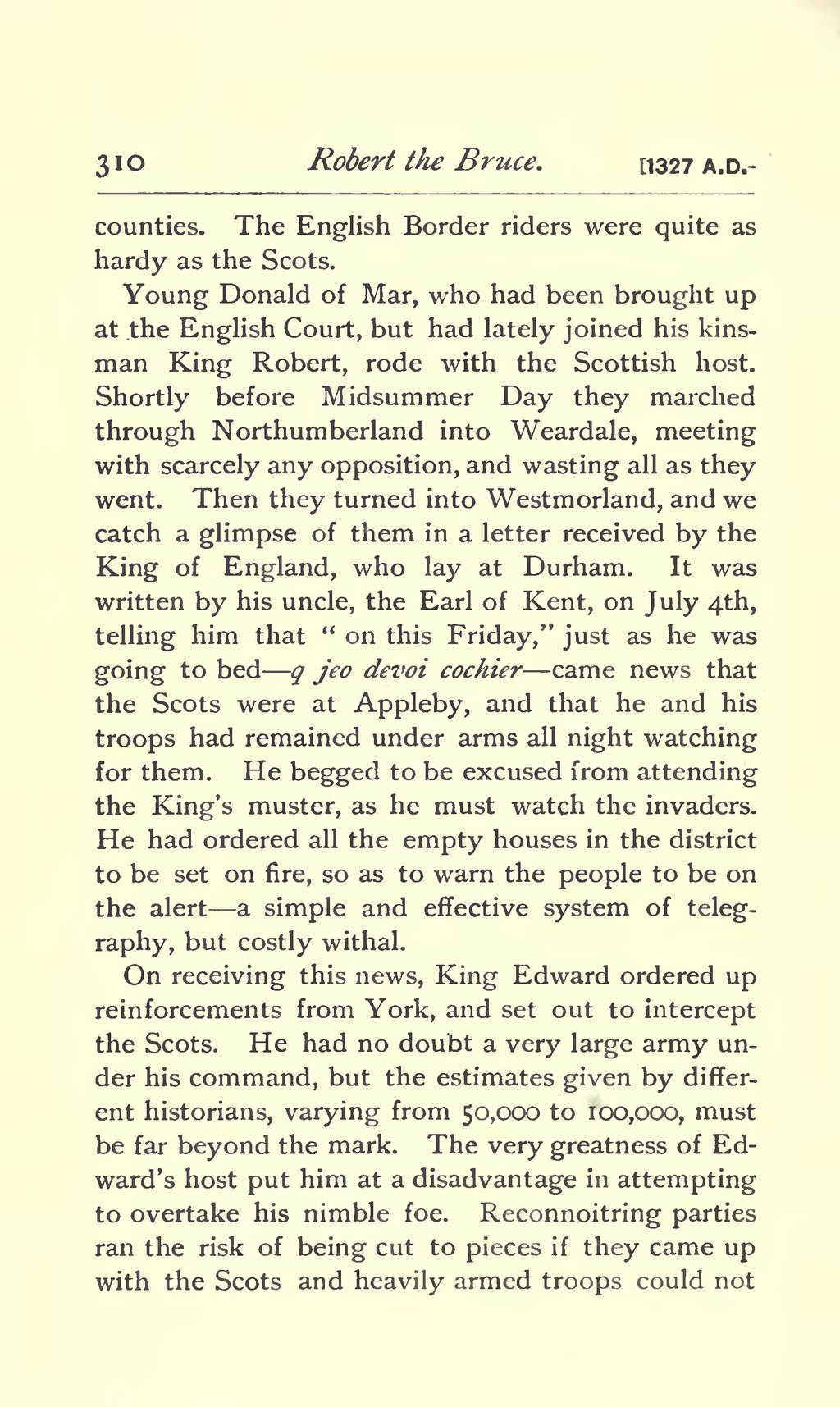counties. The English Border riders were quite as hardy as the Scots.
Young Donald of Mar, who had been brought up at the English Court, but had lately joined his kinsman King Robert, rode with the Scottish host. Shortly before Midsummer Day they marched through Northumberland into Weardale, meeting with scarcely any opposition, and wasting all as they went. Then they turned into Westmorland, and we catch a glimpse of them in a letter received by the King of England, who lay at Durham. It was written by his uncle, the Earl of Kent, on July 4th, telling him that "on this Friday," just as he was going to bed—q jeo devoi cochier—came news that the Scots were at Appleby, and that he and his troops had remained under arms all night watching for them. He begged to be excused from attending the King's muster, as he must watch the invaders. He had ordered all the empty houses in the district to be set on fire, so as to warn the people to be on the alert—a simple and effective system of telegraphy, but costly withal.
On receiving this news, King Edward ordered up reinforcements from York, and set out to intercept the Scots. He had no doubt a very large army under his command, but the estimates given by different historians, varying from 50,000 to 100,000, must be far beyond the mark. The very greatness of Edward's host put him at a disadvantage in attempting to overtake his nimble foe. Reconnoitring parties ran the risk of being cut to pieces if they came up with the Scots and heavily armed troops could not
